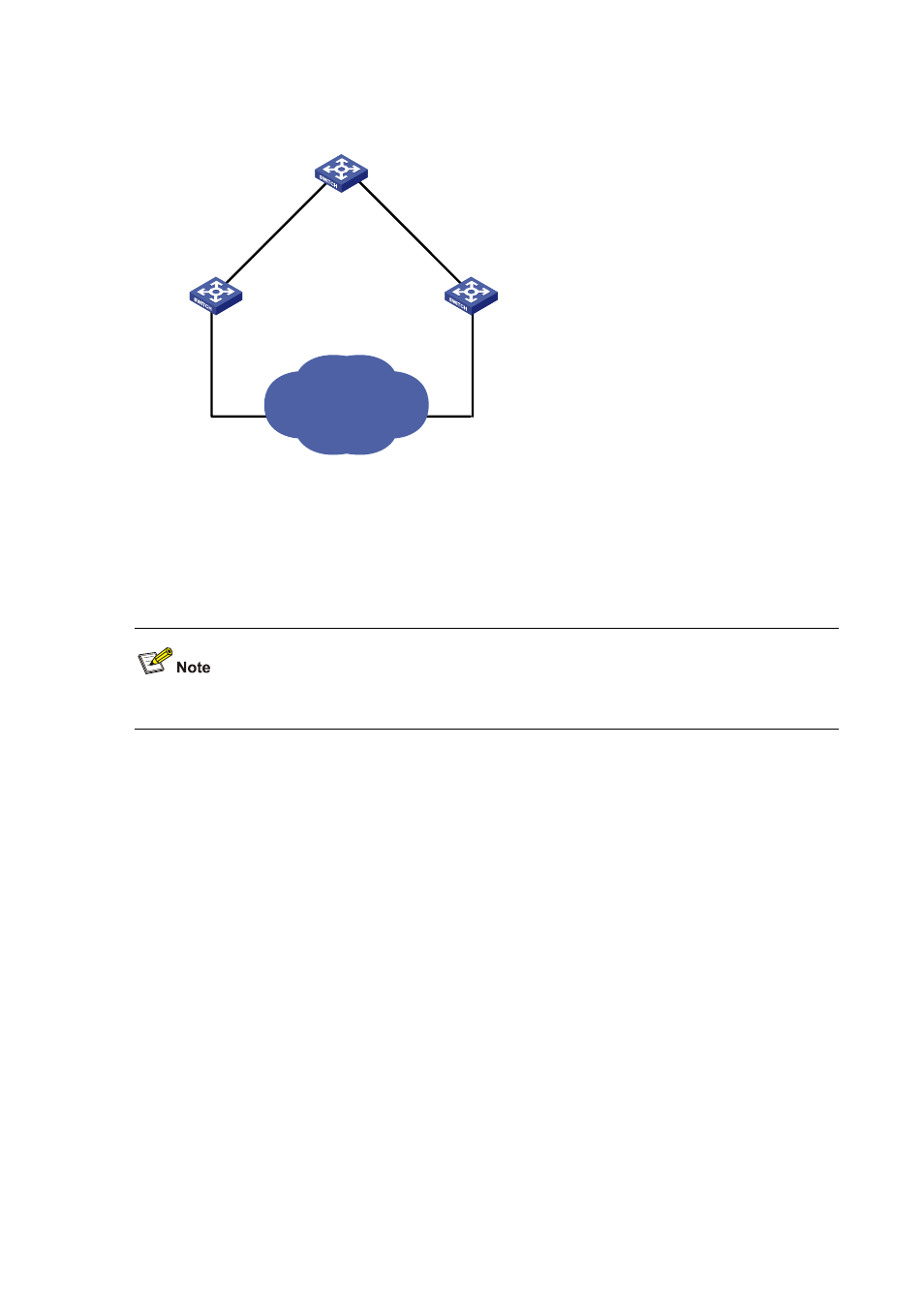Path cost, How stp works – H3C Technologies H3C WX6000 Series Access Controllers User Manual
Page 161

20-3
Figure 20-1
A schematic diagram of designated bridges and designated ports
LAN
Device A
Device B
Device C
AP 2
BP 1
BP 2
CP 1
CP 2
AP 1
Path cost
Path cost is a reference value used for link selection in STP. By calculating the path cost, STP selects
relatively “robust” links and blocks redundant links, and finally prunes the network into loop-free tree
structure.
All the ports on the root bridge are designated ports.
How STP works
STP identifies the network topology by transmitting configuration BPDUs between network devices.
Configuration BPDUs contain sufficient information for network devices to complete the spanning tree
calculation. Important fields in a configuration BPDU include:
z
Root bridge ID: consisting of root bridge priority and MAC address.
z
Root path cost: the cost of the shortest path to the root bridge.
z
Designated bridge ID: designated bridge priority plus MAC address.
z
Designated port ID, designated port priority plus port name.
z
Message age: age of the configuration BPDU while it propagates in the network.
z
Max age: maximum age of the configuration BPDU maintained in the device.
z
Hello time: configuration BPDU interval.
z
Forward delay: forward delay of the port.
